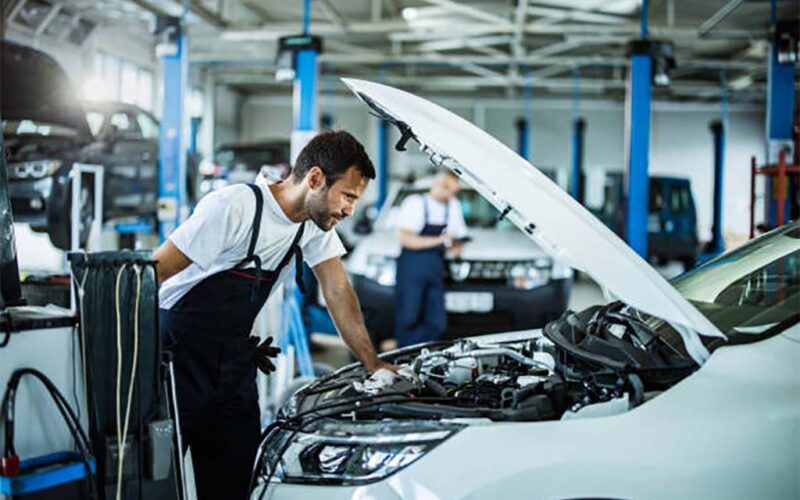Owning a car is a significant responsibility. Whether you have a brand new vehicle or a well-loved older model, regular maintenance is crucial. Annual car maintenance is akin to a medical checkup, ensuring that your vehicle stays in top shape, runs efficiently, and gives you the peace of mind you need while driving. With the right care and attention, your vehicle can serve you reliably for many years. In this guide, we will share essential car maintenance tips that you should follow annually.
Regular Oil Changes: Keeping Your Engine Smooth
One of the most critical car maintenance tasks is the regular changing of engine oil. Engine oil is the lubricant that keeps engine parts running smoothly and efficiently. Without regular oil changes, dirt and sludge can accumulate, causing severe damage to your engine over time. While the frequency of oil changes can depend on the type of oil your car uses and your driving habits, a good rule of thumb is to change your oil every 5,000 miles or every six months, whichever comes first. Regular oil changes can help you maintain an efficient engine and prolong your car’s lifespan.
Tire Care and Maintenance: Ensuring Safe and Efficient Driving
Tires are your car’s only contact with the road, making their condition vital for safe and efficient driving. Tire maintenance includes regular rotations, pressure checks, and inspections for signs of wear and damage. Tires should be rotated every 5,000 to 7,500 miles to ensure even wear, extending their lifespan. Regular pressure checks ensure optimal fuel efficiency and handling, while visual inspections can help spot issues like bulges, cuts, or punctures before they cause problems. Remember, well-maintained tires are not just about the smoothness of your ride, they’re also about your safety.
Brake System Checks: Safety Comes First
The brake system is one of the most essential safety features of any vehicle. Regular brake system checks are crucial for maintaining your car’s safety. This includes inspecting the brake pads and discs for wear, checking the brake fluid level, and being aware of any unusual sounds or feelings when you brake. If any issues are detected, they should be addressed promptly to prevent further damage and potential safety risks. Keep in mind that brake systems are complex, and some aspects of brake maintenance may require professional attention.
Battery Maintenance: Keeping the Power On
Your car’s battery is responsible for starting the engine and powering all the electrical components in your vehicle. Regular battery maintenance includes cleaning the terminals, checking the battery’s charge, and ensuring it’s securely fastened. A poorly maintained or failing battery can lead to problems like difficulty starting the engine or complete breakdowns. If your battery is more than three years old, consider having it tested by a professional to ensure it’s still in good working condition. Regular battery checks can help you avoid unexpected breakdowns and ensure your car’s electrical systems continue to function properly.

Fluid Check and Refills: The Lifeblood of Your Vehicle
Your vehicle relies on various fluids to operate efficiently and safely. This includes engine oil, coolant, brake fluid, power steering fluid, and windshield washer fluid. These fluids should be checked regularly to ensure they’re at the correct levels, and they should be replaced or topped up as needed. Low or dirty fluids can lead to poor performance and potentially cause damage to your vehicle. Regular fluid checks and changes can help maintain your car’s performance and longevity.
Regular Car Wash and Wax: Preserving Your Car’s Exterior
While it might seem purely cosmetic, regularly washing and waxing your car is an important part of car maintenance. Dirt, dust, bird droppings, and other substances can accumulate on your vehicle and can cause damage to the paintwork over time. Regular washing removes these substances, while waxing provides a protective layer that helps to prevent scratches and the effects of the sun. A well-maintained exterior can also help to preserve your car’s value, making this an essential part of your annual car maintenance.
Conclusion: The Long-Term Benefits of Regular Car Maintenance
Annual car maintenance is an investment in your vehicle’s longevity, safety, and performance. By following these essential car maintenance tips, you can help to prevent minor issues from becoming major problems, save money on potential repairs, and maintain the value of your vehicle. Remember, a well-maintained car is more reliable, safer to drive, and more efficient, making regular car maintenance an important part of responsible car ownership. With the right care and attention, your car can continue to serve you reliably for many years to come.
